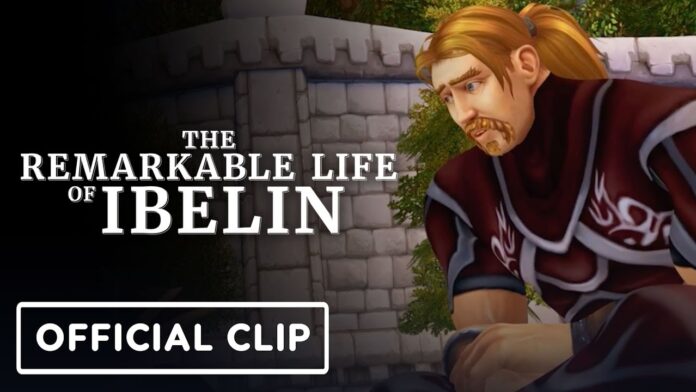The story of Matt Steen, a gamer and beloved virtual persona, challenges perceptions of online identity and community.
The untimely death of Mats Steen at just 25 years old was a profound loss for his parents, Robert and Trude Steen, who believed their son’s life was confined to a wheelchair and marked by isolation. Diagnosed with Duchenne muscular dystrophy, Mats had experienced severe mobility limitations, and his parents assumed he had led a “wasted life.” However, the shocking discovery of his vibrant online existence turned their understanding upside down.
After announcing Mats’s passing on his blog, the Steens were inundated with messages from individuals who knew him through World of Warcraft, where he had cultivated a persona as Ibelin Redmoore—a charismatic, muscular nobleman known for his heroic deeds and detective skills in the game. “We thought he lived, for many reasons, a wasted life,” Robert reflects. “And then we get these stories sharing just the opposite.” These messages revealed a side of Mats that his family had never known: he had formed deep friendships and even romantic connections, demonstrating that his life was rich with meaning and connection.
A recently released Netflix documentary, The Remarkable Life of Ibelin, delves into Mats’s dual existence, blending accounts from his parents, fellow gamers, and voice-acted segments of Mats’s in-game conversations brought to life through animation. This poignant film not only chronicles Mats’s story but also highlights broader themes about the nature of online identities and the often-overlooked complexity of digital lives.
Prior to Mats’s death, the Steens often urged their children to limit their time online, convinced that such activities led to loneliness. “We did all the right things, and we were so present in our children’s lives,” Robert admits. “With one exception – that is the digital part of their lives.” Their narrow view on online interactions reflects a common societal stigma that has long surrounded digital life, often associated with isolation and negativity.
Historically, concerns regarding digital interactions can be traced back to moral panics surrounding video games in the late 20th century. The fears revolved around violence in gaming and the potential for social isolation, culminating in a perception that linked gaming with withdrawal from reality. However, the narrative has shifted; many now recognise the potential for online communities to offer rich social interactions and support networks.
Marijam Did, author of Everything to Play for: How Video Games Are Changing the World, argues that online environments can transcend physical barriers, allowing those with disabilities, like Mats, to engage on equal footing with others. “It creates environments where physical barriers don’t exist,” Did explains. “Entire communities and livelihoods are crafted within this digital realm.” This opens up opportunities for friendships and connections that might be challenging to form offline.
The documentary also sheds light on how online spaces can provide a form of escapism for many. For Mats, this virtual world was a sanctuary, a place where he could escape the harsh realities of his condition. Pete Etchells, a psychologist and author, elaborates on the dual nature of escapism, noting that while it can provide relief from life’s stresses, it also risks becoming a maladaptive coping mechanism if relied upon excessively.
The film poignantly underscores the idea that the online experiences of individuals, particularly those with disabilities, should not be dismissed as “less real” than offline identities. “There’s still a dismissive attitude in mainstream culture that what happens in a game or on a forum isn’t serious,” Did asserts. A reevaluation of what constitutes meaningful interaction is crucial, especially as more people seek connection in digital realms.
Reflecting on their journey, the Steens express a renewed understanding of the value of online communities. Robert comments on the growing individualism in Scandinavian society and how Mats’s story can serve as a reminder of the kindness and connection that can flourish within communities, whether digital or physical. “If this could be one of the messages from this story – the kindness we can bring to a community, to the world – that would be great,” he shares.The Remarkable Life of Ibelin stands as a testament to Mats’s legacy, illustrating the profound impact of his online persona and encouraging a more nuanced conversation about digital identities. In a world that often overlooks the richness of online experiences, Mats’s story serves as a poignant reminder of the hope and connection that can thrive in unexpected places. “Imagine what the rest of us could do if we put our minds to it,” Robert muses, embodying the spirit of resilience and possibility that defined Mats’s extraordinary life.
